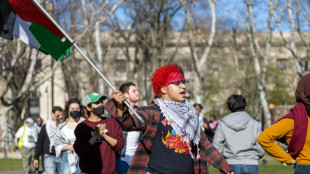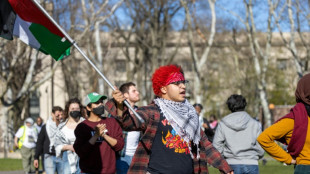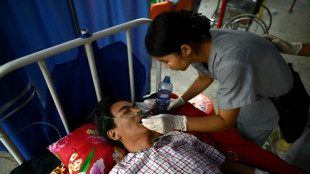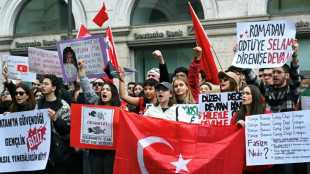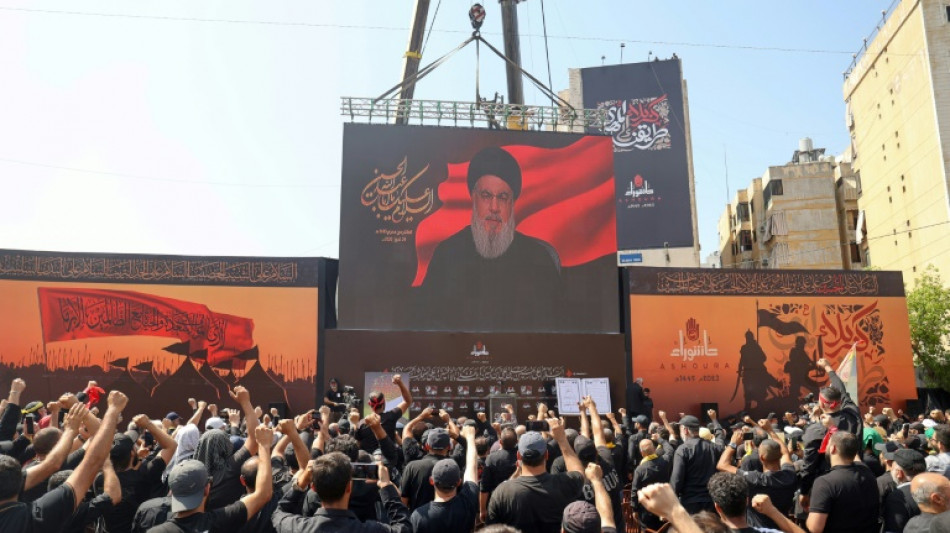
| RBGPF | 0.22% | 63.59 | $ | |
| RYCEF | 3.3% | 9.7 | $ | |
| CMSC | -0.19% | 21.768 | $ | |
| SCS | -3.28% | 9.905 | $ | |
| GSK | 1.02% | 35.645 | $ | |
| BTI | 0.84% | 42.365 | $ | |
| AZN | -0.31% | 67.8 | $ | |
| RIO | 0.39% | 57.235 | $ | |
| NGG | 2.45% | 71.13 | $ | |
| VOD | 1.54% | 9.1 | $ | |
| BCE | -1.45% | 21.34 | $ | |
| RELX | 2.7% | 51.51 | $ | |
| BCC | -1.48% | 93.53 | $ | |
| CMSD | -0.06% | 21.897 | $ | |
| JRI | 1.51% | 12.1806 | $ | |
| BP | 1.48% | 27.315 | $ |

Hezbollah chief in new attack on same-sex relations
The leader of Lebanon's powerful Hezbollah movement on Saturday stepped up his attacks against the region's long-marginalised LGBTQ community.
"We are not making up battles, nor are we making up dangers. This is a real danger that is imminent and has begun," Hassan Nasrallah said in a televised speech for the annual Ashura commemoration, among the most important in Shiite Islam.
Last week, Nasrallah had said gay people, "even if they do it once... are to be killed".
In his latest comments Nasrallah said that, "In Lebanon, this danger started with some educational institutions, and NGOs," which he accused of "promoting" same-sex relations to children. He called on the ministry of education to intervene.
Many Western governments consider Hezbollah to be a "terrorist" organisation.
It is the only side not to have disarmed following Lebanon's 1975-1990 civil war, and it is a powerful player in the politics of Lebanon, whose economy has collapsed since 2019.
Religiously diverse Lebanon is one of the Middle East's more liberal countries, and the LGBTQ community has long been visible and outspoken, defying arbitrary crackdowns on its bars, nightclubs and community centres.
But it has continued to face systematic social, economic and legal discrimination -- which an expert has warned could only be worsened by Nasrallah's rhetoric.
"Hate speech functions as a tool of diversion, wielded by Nasrallah and political elites to divert public attention from profound economic disparities and governance failures," Hussein Cheaito, an economist who focuses on queer political economy, wrote on Twitter, which is being rebranded as "X".
"This calculated tactic perpetuates their grip on power," he said, while adding to "a vicious cycle of discrimination, fear, and exclusion, entwined with Lebanon's socio-economic fabric."
Lebanon's LGBTQ community in 2018 scored a success when a court ruled that same-sex conduct is not unlawful, but since then it has seen more setbacks than victories.
Last summer, the community was targeted by a crackdown that saw activists harassed and Pride gatherings cancelled after the interior ministry instructed security forces to clamp down on events "promoting sexual perversion".
The ministry argued that LGBTQ events violate customs, traditions and "principles of religion" in Lebanon, where political power is split along faith lines between Shiite and Sunni Muslim, Christian, Druze and other groups.
O.M.Jacobs--JdB
